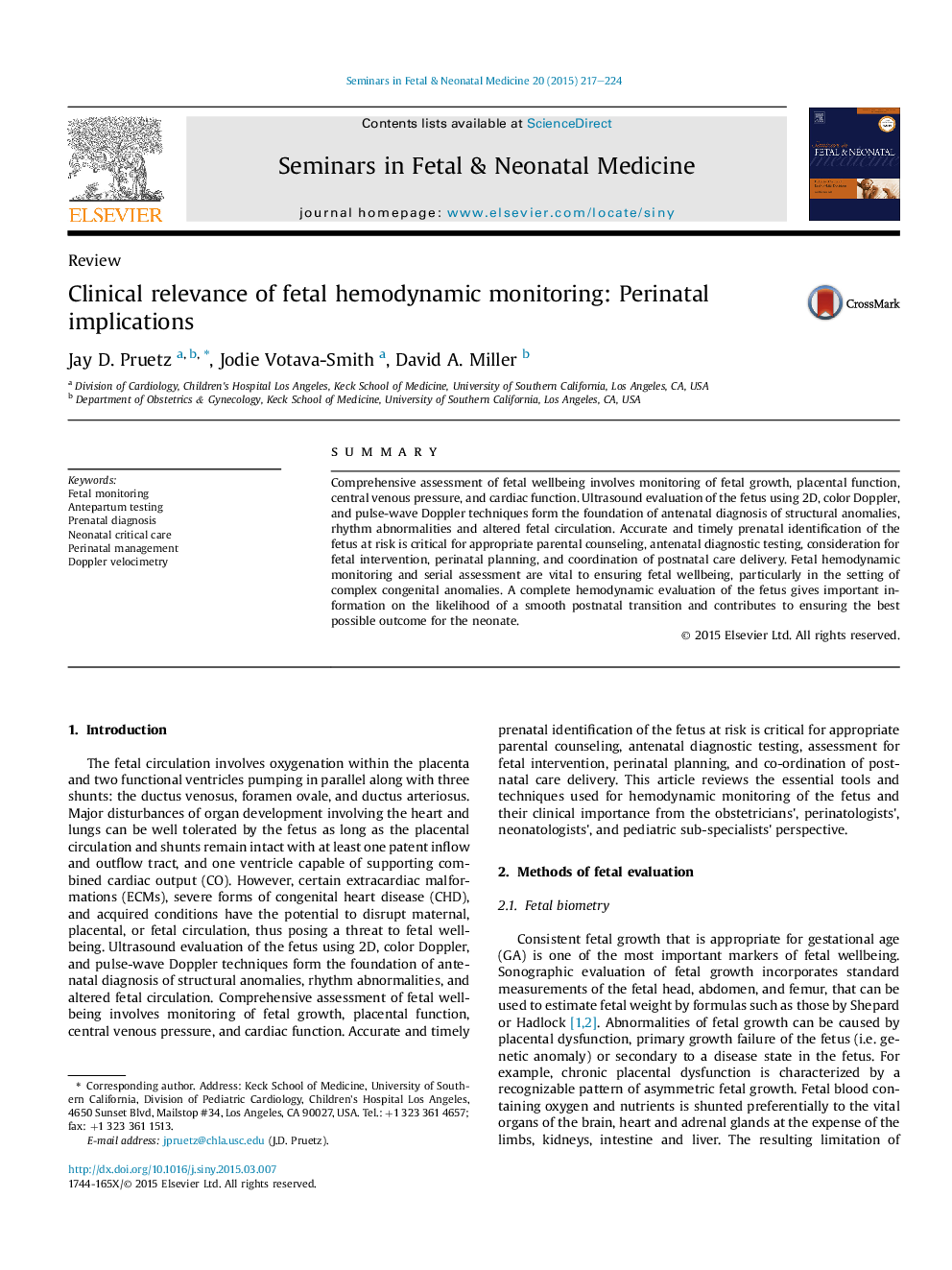| Article ID | Journal | Published Year | Pages | File Type |
|---|---|---|---|---|
| 3974019 | Seminars in Fetal and Neonatal Medicine | 2015 | 8 Pages |
SummaryComprehensive assessment of fetal wellbeing involves monitoring of fetal growth, placental function, central venous pressure, and cardiac function. Ultrasound evaluation of the fetus using 2D, color Doppler, and pulse-wave Doppler techniques form the foundation of antenatal diagnosis of structural anomalies, rhythm abnormalities and altered fetal circulation. Accurate and timely prenatal identification of the fetus at risk is critical for appropriate parental counseling, antenatal diagnostic testing, consideration for fetal intervention, perinatal planning, and coordination of postnatal care delivery. Fetal hemodynamic monitoring and serial assessment are vital to ensuring fetal wellbeing, particularly in the setting of complex congenital anomalies. A complete hemodynamic evaluation of the fetus gives important information on the likelihood of a smooth postnatal transition and contributes to ensuring the best possible outcome for the neonate.
